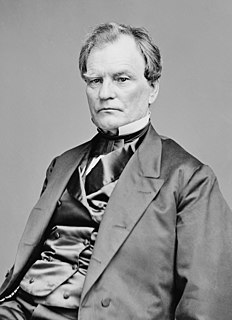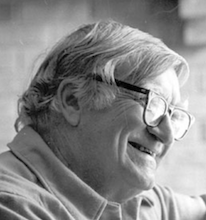A Quote by Giacomo Casanova
Man is free; yet we must not suppose that he is at liberty to do everything he pleases, for he becomes a slave the moment he allows his actions to be ruled by passion.
Related Quotes
I believe in an America where the rights that I have described are enjoyed by all, regardless of their race or their creed or their national origin - where every citizen is free to think and speak as he pleases and write and worship as he pleases - and where every citizen is free to vote as he pleases, without instructions from anyone, his employer, the union leader or his clergyman.
The issue of religious liberty is absolutely critical. America was founded on three different types of liberty: political liberty, economic liberty, and religious and civil liberty. It's remarkable that, one-by-one, these strands of liberty are coming under fierce attack from the Left. And that's particularly ironic because "liberal" derives from a word which means "liberty," the free man as opposed to the slave. This liberalism which we're saddled with today isn't a real liberalism at all, but a gangster style of politics masquerading as liberalism.
[M]an is condemned to be free. Condemned, because he did not create himself, in other respect is free; because, once thrown into the world, he is responsible for everything he does. The Existentialist does not believe in the power of passion. He will never agree that a sweeping passion is a ravaging torrent which fatally leads a man to certain acts and is therefore an excuse. He thinks that man is responsible for his passion.
The feeling of patriotism - It is an immoral feeling because, instead of confessing himself a son of God . . . or even a free man guided by his own reason, each man under the influence of patriotism confesses himself the son of his fatherland and the slave of his government, and commits actions contrary to his reason and conscience.
Treat all men alike.... give them all the same law. Give them all an even chance to live and grow. You might as well expect the rivers to run backward as that any man who is born a free man should be contented when penned up and denied liberty to go where he pleases. We only ask an even chance to live as other men live. We ask to be recognized as men. Let me be a free man...free to travel... free to stop...free to work...free to choose my own teachers...free to follow the religion of my Fathers...free to think and talk and act for myself.
Like the amazing story of Anthony Johnson. This man was a slave, then became free, accumulated 250 acres, and even had his own slave, a black man who took him to court in Virginia in 1654.That man argued that he should be freed like an indentured servant. But Johnson, who we believe was a pure African from Angola, said, "No way, you're my slave." And the court agreed.
It is not the right of property which is protected, but the right to property. Property, per se, has no rights; but the individual - the man - has three great rights, equally sacred from arbitrary interference: the right to his life, the right to his liberty, the right to his property The three rights are so bound together as to be essentially one right. To give a man his life but to deny him his liberty, is to take from him all that makes his life worth living. To give him his liberty but take from him the property which is the fruit and badge of his liberty is to still leave him a slave.

































